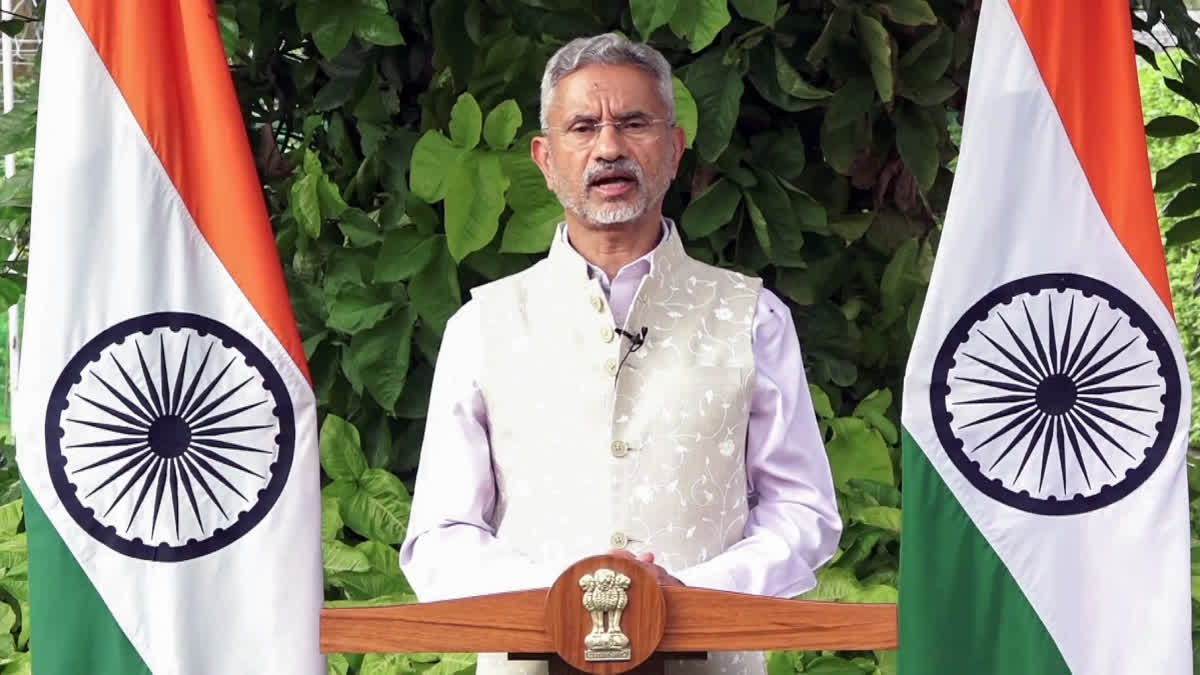New Delhi: External Affairs Minister S Jaishankar and Chinese Foreign Minister Wang Yi on Thursday agreed on the need with purpose and urgency to achieve complete disengagement at the earliest. Both the ministers came face to face today at Vientiane, Lao PDR on the sidelines of the ASEAN-related foreign ministers meetings.
The meeting gave the two Ministers an opportunity to review the situation since their last meeting at Astana on 4 July this year. Their talks focussed on finding an early resolution of the remaining issues along the Line of Actual Control (LAC) to stabilise and rebuild bilateral relations.
The Ministry of External Affairs said that both Ministers agreed on the need to work with purpose and urgency to achieve complete disengagement at the earliest.
"Both sides must fully abide by relevant bilateral agreements, protocols, and understandings reached between the two Governments in the past. EAM stressed the importance of the three mutuals --- mutual respect, mutual interest and mutual sensitivity --- to India-China ties," the MEA added.
As discussed earlier, both sides will hold an early meeting of the Working Mechanism on Consultation and Coordination on India-China Border Affairs (WMCC) to take the discussions forward. The two Ministers also exchanged views on the global and regional situation, the MEA added.
The 29th meeting of the Working Mechanism for Consultation & Coordination on India-China Border Affairs (WMCC) was held on 27 March this year in Beijing. Joint Secretary (East Asia) from the MEA led the Indian delegation. The Chinese delegation was led by the Director General of the Boundary & Oceanic Department of the Chinese Ministry of Foreign Affairs.
The two sides had an in-depth exchange of views on how to achieve complete disengagement and resolve the remaining issues along the LAC in the western sector of India-China border areas. In the interim, both sides agreed to maintain regular contact through diplomatic and military channels and on the need to uphold peace and tranquillity on the ground in the border areas in accordance with existing bilateral agreements and protocols.



